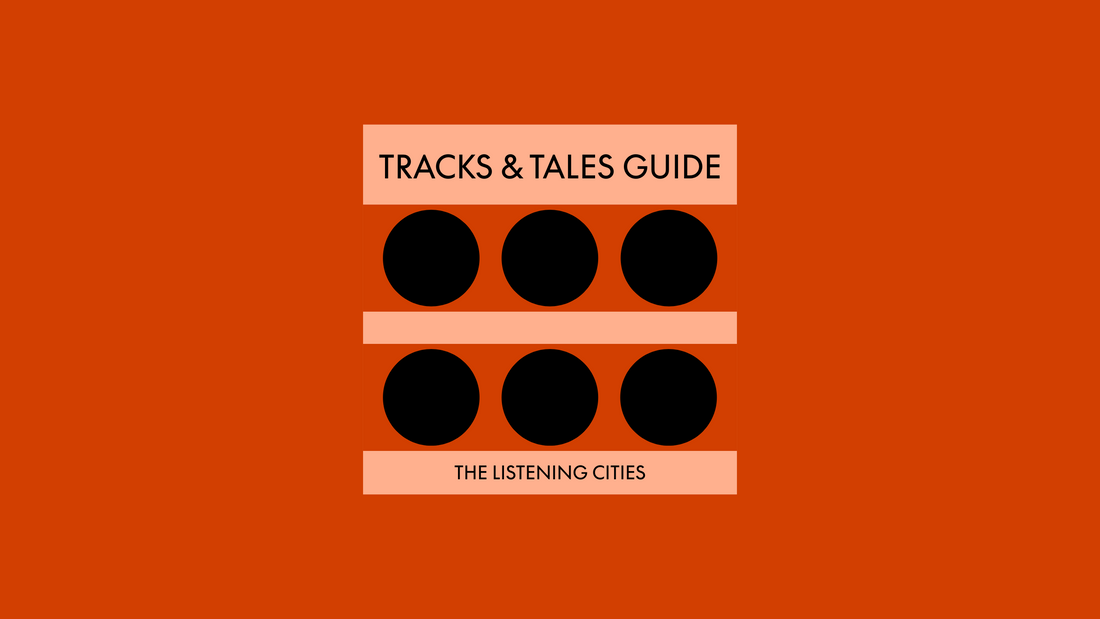
Dubai: Listening Bars — Desert Light and Sonic Precision
By Rafi Mercer
Dubai has always moved in superlatives. The tallest tower piercing desert light, the largest mall swallowing whole neighbourhoods, the longest ribbons of reclaimed coast unfurled into the Gulf. For decades its soundtrack mirrored its skyline — loud, relentless, spectacular. Stadium EDM, rooftop DJ sets, hotel clubs engineered for excess. Volume became shorthand for energy. But over the last few years, the city has been quietly retuning itself. Behind mirrored facades and warehouse shutters, a different kind of room is forming — intimate, precise, and built not for spectacle but for listening.
Step into one of these spaces and the contrast is immediate. Outside, highways vibrate with the weight of traffic, cranes sweep across skylines that seem to reset themselves by the month. Inside, a low-lit room where proportion matters more than height, a hi-fi system glowing at its centre, a drink measured with care, a record blooming into the dark. In a city built on scale, intimacy has become a kind of luxury.
The influences are clear — Tokyo’s kissaten, Berlin’s minimal lounges, London’s hi-fi bars — but in Dubai they wear a different accent. The drinks lean international: rare Japanese whiskies beside saffron cocktails, Emirati dates folded into mezcal sours. The programming is just as global, a reflection of the city itself: Afrobeat into Arabic jazz, ambient electronica flowing into seventies funk, cumbia easing into Balearic house. This is a city that listens the way it lives, as a crossroads.
In Downtown, where the Burj Khalifa throws its shadow across every surface, a lounge draped in indigo offers an almost subterranean calm. The system is built from horn-loaded speakers and McIntosh amps, tuned for detail rather than force. A selector moves from Brazilian bossa to Coltrane without raising the volume, and the room leans in, exhaling as one. On Palm Jumeirah, amid hotels built for spectacle, a minimalist bar pares everything back to plaster and geometry. A single wall of vinyl doubles as library and sculpture, each record selected as carefully as the architecture itself. Sets move fluidly — oud into electronica, Balearic into tropicalia — reminding you that this is a city perched between continents.
Further out in Al Quoz, where warehouses and art galleries cluster, a café called Karak & Vinyl blends Dubai’s obsessions with tea and music. By day, enamel cups of chai steam on wooden counters; by night, the turntables emerge, lights dim, and the crowd reshapes itself around sound. The programming is democratic, exploratory — Ethiopian jazz one night, deep dub the next, an obscure disco pressing the night after. The acoustics, softened by canvas art and carpets, make even sharp-edged tracks feel warm. Students, financiers, artists, and expats share the same tables. It is, in its way, the most Dubai of spaces: diverse, ambitious, always in translation.
What matters in these bars is not just the music, but what they say about the city itself. For years, Dubai measured luxury in scale — the tallest, the biggest, the loudest. These rooms suggest another measure. They whisper that luxury might be found in restraint, that presence carries its own currency, that fidelity is its own form of wealth. They remind you that silence is part of music, that detail is part of design, and that listening is its own kind of architecture.
In the desert, night falls quickly. The heat eases, the skyline begins to glow, and the city’s energy shifts. It is in that moment that these rooms come into their own. The spectacle can wait outside. Inside, you take a seat, order a drink, and let the needle drop. For once, in a city obsessed with height and speed, you simply listen.
Rafi Mercer writes about the spaces where music matters. For more stories from Tracks & Tales, subscribe, or click here to read more.














